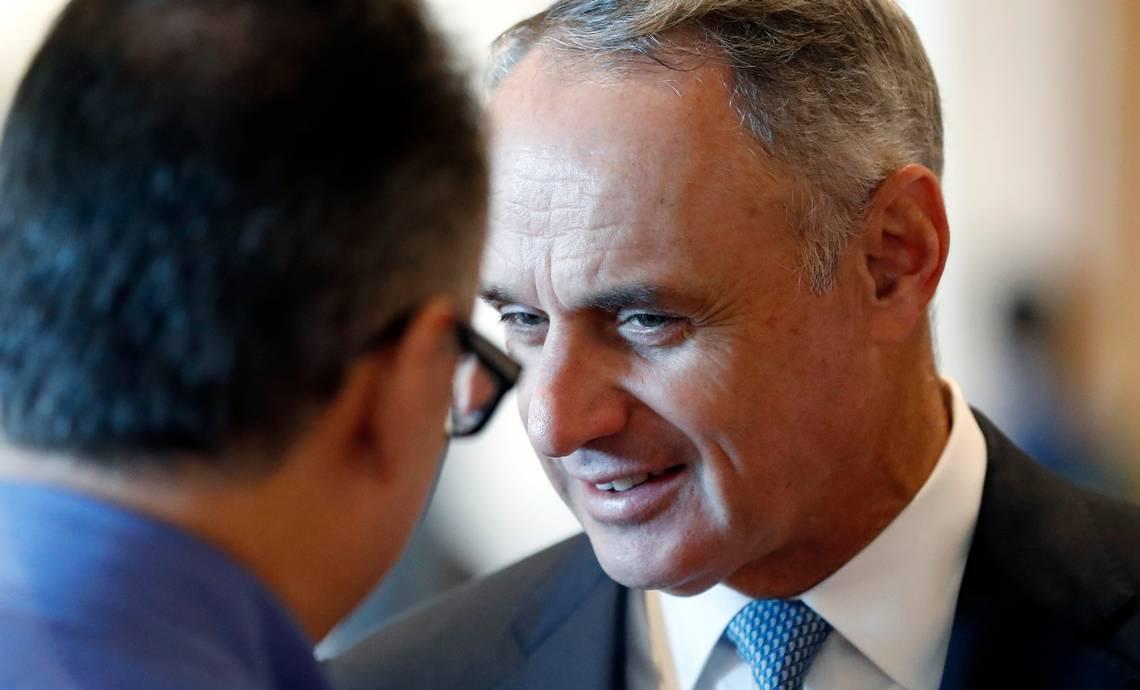
Don’t waste your time blaming MLB commissioner Ron Manfred for this lockout, and never side with the people he represents.
This lockout didn’t start with Manfred telling the owners what to do. This started with a specific group of high-level baseball people telling Manfred it was time to restructure MLB’s expense sheet.
According to people familiar with this situation, this started years ago when then Houston Astros GM Jeff Luhnow and current owner Jim Crane looked at their books and decided things needed to change.
Then it was a slow process of recruiting more owners, and MLB people, to come to their way of thinking, that it was time to change multiple models.
According to the calendar we should be into Week 2 of baseball games in the Grapefruit and Cactus Leagues, but the pursuit of money prevented spring training from starting on time.
The MLB lockout is into Day Whatever, and commissioner Rob Manfred has become El Diablo de Beisbol.
That’s what the owners pay him to be, but the Houston Astros, as much as any other franchise in MLB, are driving this one.
Approximately five years ago word started to spread that the league was looking to contract minor league franchises because MLB owners were tired of the costs associated with developing players.
MLB’s minor league system was bloated and out-dated, a product from a bygone era of sports. MLB owners felt there is no need for that many levels of minor league ball.
The Astros, a team considered “ahead” with their player development system, wanted to cut. That started by attacking one of baseball’s biggest expenses, the farm.
Despite criticism, and threats from city leaders and even members of Congress, MLB eliminated 42 minor league teams in December of 2020.
The reduction left every MLB team with a minor league franchise on the Triple A, Double A, High A and Low A levels.
This was a cost reduction in terms of players, coaches, and front offices as MLB basically took over control of the minor leagues.
Dumping a bunch of minor league teams was a party compared to the real fight MLB was preparing for, which is this current labor dispute with the MLB Players Association.
No union in the United States has kicked around its bosses quite like the MLBPA.
Former MLB commissioner Bud Selig learned this early in his tenure, when the players struck in the second half of the 1994 season that led to the cancellation of the remainder of the season including the World Series.
The lockout didn’t end until after the 1995 spring training was over, with the players essentially winning.
More than 25 years later, this is a mostly a new group of owners, and a new commissioner. Virtually none of them have any memory of what was the then the worst labor fight in the history of North American sports.
Manfred is like most commissioners, he follows the directives as ordered by the people who pay his salary, the owners.
All commissioners get kicked around, and eventually become Captain Miserable.
Manfred is just another humorless, calculating lawyer negotiating a contract, trying to crack a union — the Major League Baseball Players Association — that is arguably the best union in the United States.
He’s also actually somehow worse in front of a camera than his predecessor
The whole scenario is a mess, bad for MLB, and a sport that cannot afford to lose any more of its market share that it’s already lost due to generational preferences, a seemingly infinite set of entertainment options and society’s waning attention span for the game.
This is not all on Rob Manfred.
It’s more on the people, and the franchises, he represents, most notably the Houston Astros.
